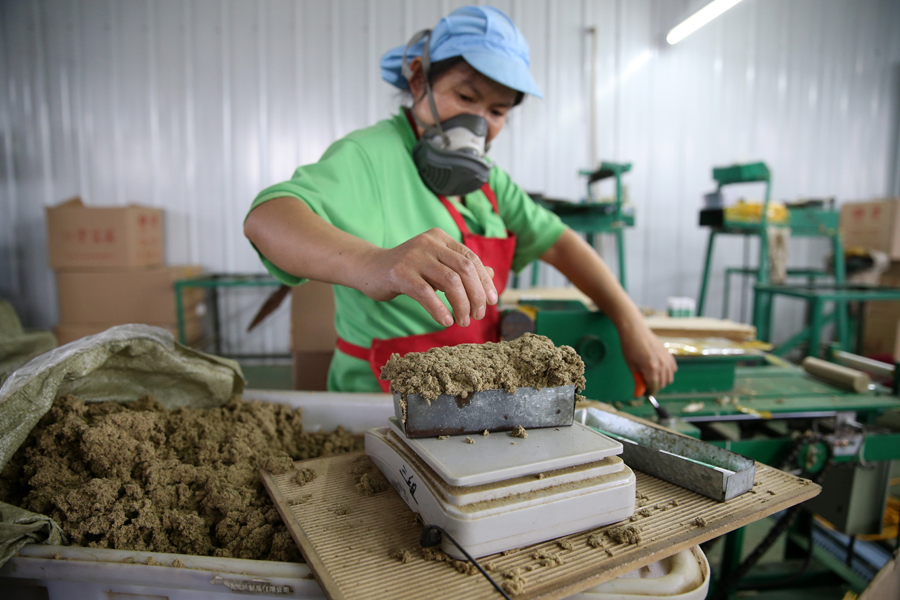Mugwort works its magic
By Wang Xiaodong in Qichun, Hubei | China Daily | Updated: 2018-06-18 08:03

Following a visit by county government officials to South Korea in 2010, where they were impressed by traditional medicine research and development, the local government decided to take measures to develop the mugwort industry, Yu said.
The government has integrated planting of mugwort with poverty reduction since 2014, hoping the herb can help lift farmers in the county out of poverty.
Regarded by the central government as an impoverished county, Qichun's per capita GDP last year was only 29,472 yuan ($4,600), according to the county government, far below the national average of 59,660 yuan.
An annual subsidy of 6,000 yuan has been offered since 2014 for every hectare of land sown with mugwort by a household registered as living in poverty, the county government said.
Meanwhile, enterprises involved in the industry in the county also benefit from preferential policies such as loan subsidies, Yu said.
The number of farmers growing the herb now exceeds 40,000-accounting for about 4 percent of the county's population-and the total area planted with mugwort is more than 10,000 hectares, he said.
By the end of last year, more than 20,000 households in the county had escaped poverty by planting mugwort, Yu said.
By the end of last year, the number of registered enterprises involved in the mugwort industry in Qichun exceeded 1,100, with the industry's value increasing by 1 billion yuan year-on-year to 3 billion yuan, according to the county government.
Gan Huawen, a human resources manager at Qiaitang, a company that produces mugwort-related products in Qichun, said it has developed more new products using mugwort as an ingredient, including shampoo, toothpaste and beverages.
























